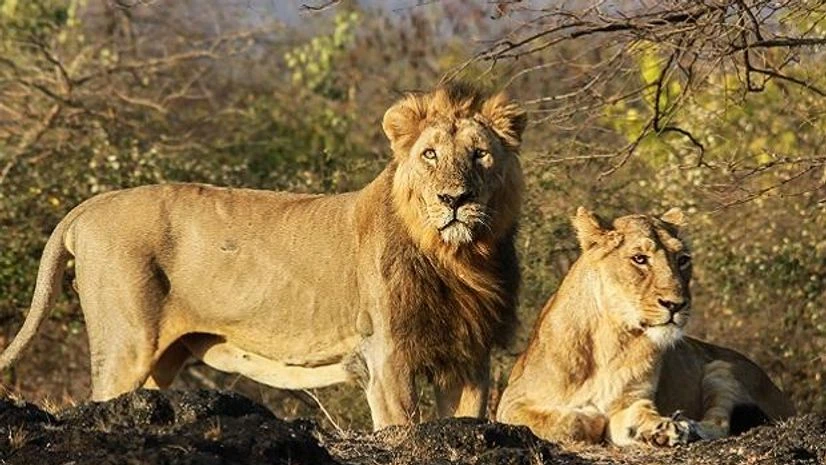A total 555 Asiatic lions died in the last five years but there has been no increase in their mortality rate, the government told the Lok Sabha on Monday.
The Gir forest in Gujarat is the only natural habitat of the Asiatic lion. According to government data, the number of these big cats in Gir rose from 523 in 2015 to 674 in 2020.
Replying to a question, Union Minister of State for Environment Ashwini Kumar Choubey told the Lower House that 555 lions died in the last five years.
He said 113 lions died in 2019, 124 in 2020, 105 in 2021, 110 in 2022 and 103 in 2023.
Asked if an increasing number of lions were dying in the country, the minister replied in the negative.
Over the years, experts have demanded the translocation of lions in India as the big cats have been geographically isolated in Gir. A second home would protect the lion population from extinction in case of an epidemic, an unexpected decline in prey or natural calamities.
More From This Section
In September 2018, 27 lions died in Gir because of canine distemper virus while 37 had to be quarantined.
According to a 2023 report by the Wildlife Institute of India, authorities plan to translocate 40 lions to the Barda Wildlife Sanctuary, around 100 kilometres from the Gir National Park.
In 2013, the Supreme Court ordered the translocation of lions from Gir to the Kuno National Park in Madhya Pradesh. The government, however, released cheetahs into Kuno in 2022-23 as part of its much-vaunted project to reintroduce the spotted feline in India.
Wildlife expert Ravi Chellam had earlier told PTI that Barda could not be a replacement for Kuno because it is barely 100 kilometres from Gir, as the crow flies.
"Geographic separation is the primary objective of translocation to establish a second free-ranging population of lions to mitigate conservation risks," Chellam, also the coordinator for Biodiversity Collaborative, Bengaluru, had said.

)
